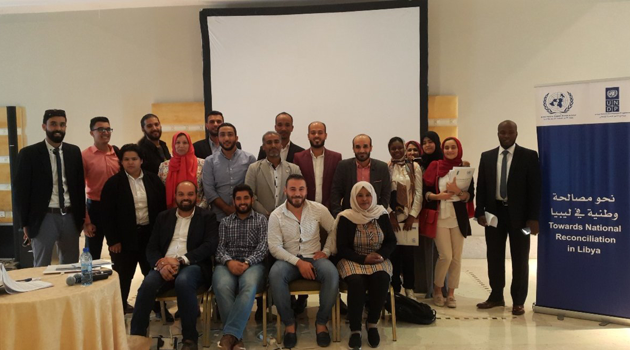In Tripoli, Libyan Civil Society Organizations Receive Training on Conflict Resolution, Transitional Justice and Reconciliation
With the aim of enhancing civil society organizations (CSOs)’ capacities to engage in reconciliation efforts in Libya, the United Nations Support Mission in Libya (UNSMIL) and the United Nations Development Programme (UNDP), organized a two-day training from 07 to 08 November in Tripoli, to equip CSOs with practical tools of conflict resolution, reconciliation and transitional justice.
Participants come from diverse backgrounds – human rights, peacebuilding, women, youth and justice – from across Libya including Tripoli, Benghazi, Sabha, Ubari, Zuwara, Misrata, Bani Walid, Nafusa Mountains, as well as Tebu and Tuareg tribes.
The training focused on strengthening civil society-led efforts, including inter-community dialogue, documentation and reporting on human rights violations, as well as inspiring community participation in reconciliation initiatives. The training’s sessions touched upon conflict analysis, conflict resolution, understandings and approaches to reconciliation, the role of civil society in developing bottom-up transitional justice, and on CSO’s role in supporting reconciliation in Libya more generally.
“It was a very useful training, which gave me a better understanding of reconciliation and the role that civil society could play in support of reconciliation, especially in the current situation in Libya,” Khadija Baba, a Tuareg participant working for a women’s rights NGO, said.
During this two-day training, which is one of many events the United Nations is intending to conduct inside Libya, the participants had the chance to understand how CSOs can effectively contribute to reconciliation, taking into consideration national processes as well as local dynamics.
Ms. Baba explained, “Civil society organizations face many challenges in Libya. We don’t have a strong technical capacity and security is always an issue for us.”
Participants hailed the training taking place in Libya as it allows more people to participate while giving more legitimacy and local ownership over reconciliation efforts.
(Source: UNSMIL)





